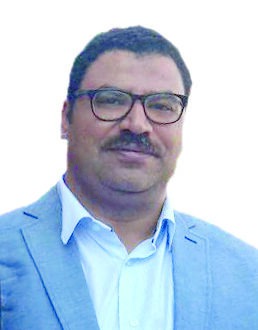Weeks after the flood that swept the centre of the Libyan city of Derna into the sea, thousands of families are struggling to cope with the loss of loved ones and are haunted by the unknown fate of the missing.
Meanwhile, Morocco struggles to shelter tens of thousands of homeless after the 6.8-magnitude earthquake that killed nearly 3,000 people.
According to international financial agencies, the cost of damage could be as high as 8 per cent of the country’s gross domestic product or nearly $10.7 billion, based on 2022 GDP estimate of $134.18 billion.
In Libya, Storm Daniel has wreaked havoc on a country that has been grappling with conflict and economic crisis for over a decade. With few resources for search and rescue, experts warn that humanitarian partners will need tens of millions of dollars to respond to the needs of those impacted on the ground.
Despite the different natures of the two crises in the two North African countries, they represented a perfect model for natural disasters that have the power to unleash significant devastation, resulting in both economic and humanitarian losses that leave communities struggling to recover.
However, while the international community and friendly countries are busy counting losses and offering financial and logistical aid, there is one big loss that usually goes unnoticed and uncounted.
In the aftermath of recent disasters such as those that have struck the nations of Libya and Morocco, the toll of trauma on their populations cannot be underestimated. Natural calamities such as storms and earthquakes have the capacity to inflict deep psychological scars, leaving individuals and communities grappling with the aftermath long after the physical destruction has taken place.
The experiences of traumatic events, including the loss of loved ones, displacement, and witnessing the destruction of homes and livelihoods, fundamentally reshape the lives of those affected.
These unaccounted costs also include the long-term effects on human health, mental well-being, and social fabric.
While offering necessary logistical aid to victims, we should never ignore the profound trauma endured by Libyans and Moroccans in the wake of these recent disasters. International bodies should recognise the urgent need for psychological support, healing, and initiatives to rebuild shattered lives. Understanding and addressing the psychological toll is crucial for supporting individuals and communities on their path to recovery and resilience.
Understanding and addressing these unaccounted costs of natural disasters are crucial for developing effective strategies to mitigate their impact and build resilient communities capable of withstanding future disasters.
However, we have to admit that healing from natural disaster trauma can be a complex and ongoing process, which requires integration and co-operation between local and international agencies including the NGOs and United Nations agencies.
This process should at first ensure that traumatised victims and their loved ones are safe and have a secure and stable environment. They should be provided with immediate relief and assistance, counseling and mental health support, education and training, and secure access to basic needs.
For those who are going to help with natural disaster trauma, it’s important to acknowledge that healing from natural disaster trauma is a personal journey, and there is no one-size-fits-all approach. It is essential to find strategies and coping mechanisms that can help as many people to overcome this barrier and gain their normal life back.






Discussion about this post